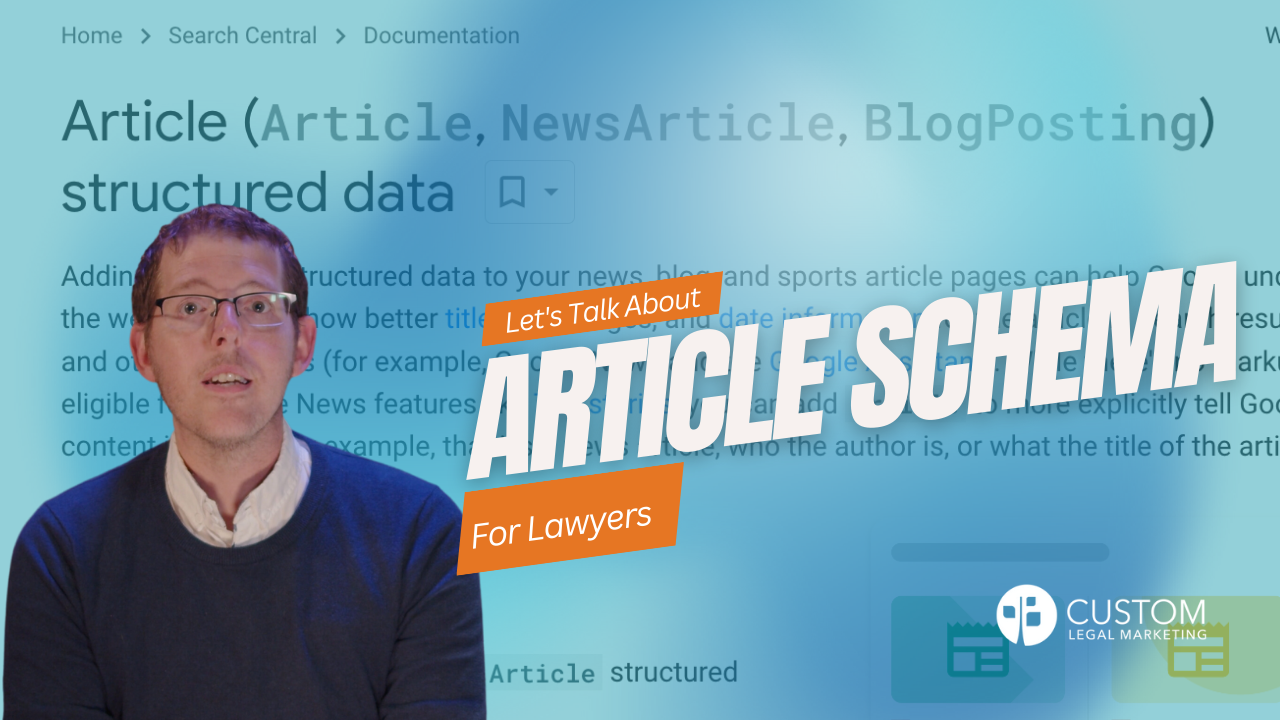You might now know this but Google has over 30 structured data types to help content creators like your law firm stand out in search results. This week, we launched the first video in our series on schema markups for lawyers, which is available on YouTube.
Understanding the Power of Article Schema for Your Law Firm
At first glance, structured data might seem complex and code-like, but fear not! You don't need to be a programming wizard to configure schemas effectively. The primary purpose of structured data, and specifically Article Schema, is to enable you to communicate with Google in a language it understands. By implementing structured data, you tell Google about the type of content you've created and how you want it to be presented to the public.
Think of it as a way to provide Google with a roadmap to navigate your content. By breaking down your content into key sections like headlines, authors, published dates, and more, you make it easier for Google to comprehend and feature your content appropriately based on the type of content you've created.
Article Schema: The Three Versions
Google's Article Schema comes in three versions: Article, NewsArticle, and BlogPosting. Each version serves a specific purpose, so let's briefly explore them:
- Article Schema: This is a catch-all schema for most of your website's textual content. If you're using an SEO plugin with built-in Schema support, it's recommended to assign Article as the default schema for your page content. In fact, every practice area page on your website can be considered an article, making it a perfect starting point for structuring your content.
- NewsArticle Schema: Designed for timely news-related articles, NewsArticle Schema includes specialized properties like datelines and print editions. This schema optimizes the display of news articles, ensuring they get the attention they deserve.
- BlogPosting Schema: Specifically tailored for blog posts, BlogPosting Schema takes into account elements like "comments," which are unique to blog posts. If your law firm has a blog section, this schema is perfect for enhancing its visibility.
How to Assign Article Schemas to Your Law Firm's Content
Implementing Article Schema on your WordPress site is straightforward, and you don't need to worry about coding skills. The process will depend on the SEO plugin you're using. For example:
- Yoast users: Access your Search Appearance Settings and set the schemas based on post types. This default setting will apply to all your blogs and pages.
- RankMath users: Go to your General Settings Dashboard and select Schemas. You can add a different default Schema for each post type.
Your law firm's content will automatically be assigned the appropriate properties based on the Article Schema type you've selected. However, if you ever need to make adjustments, you can easily edit the schema on a per-post basis, allowing you to tailor it to specific content types.
Unleashing the Power of Article Schema
By utilizing Article Schema, you're essentially guiding Google through your content, enabling it to better understand what your law firm is writing for the public. As a result, Google can feature your content more effectively in search results, potentially landing you coveted featured snippets or other special appearances.
By providing structured data, you're enabling Google to navigate your content effectively and feature it more prominently in search results. So, take advantage of Article Schema and unleash the full potential of your law firm's online presence!
Plus, don't forget to subscribe to our YouTube channel so you can be the first to see our next schema video where we talk about breadcrumbs.

